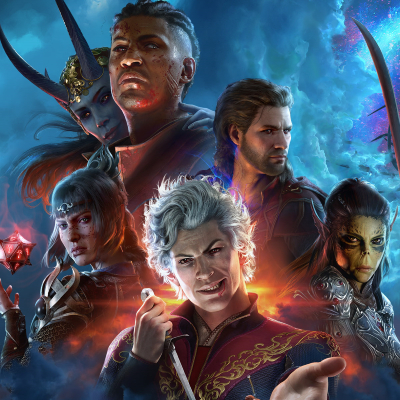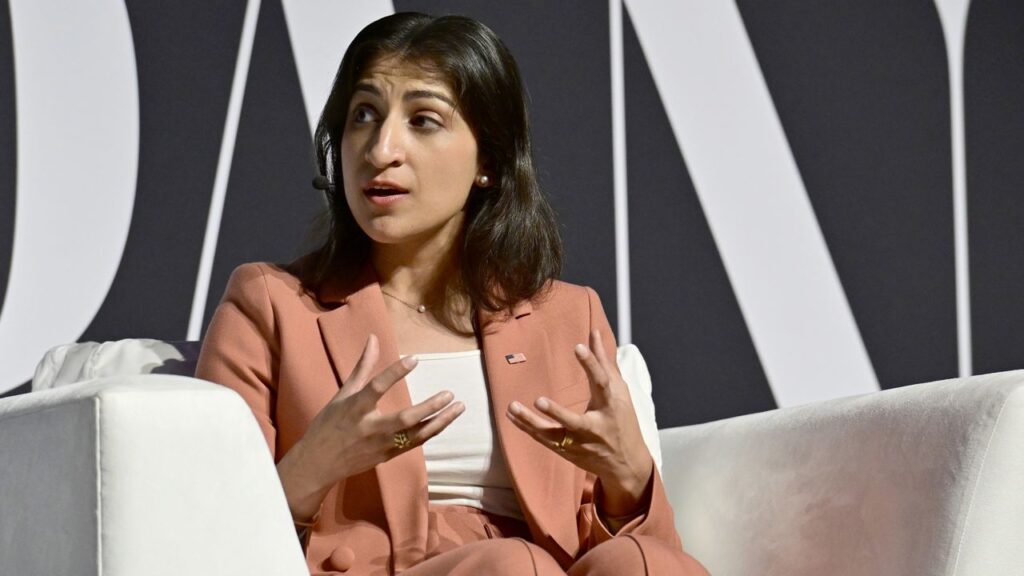As Microsoft slashes jobs and raises prices, former US Federal Trade Commission chair Lina Khan has taken to X to say that the company’s actions since completing its acquisition of Activision Blizzard in 2023 is pretty much what the FTC warned would happen when it opposed the deal.
Khan, you may recall, was head of the FTC when it challenged Microsoft’s proposed acquisition of Activision Blizzard, a convoluted process that didn’t formally end until May of 2025—almost two years after the deal closed.
“Microsoft’s acquisition of Activision has been followed by significant price hikes and layoffs, harming both gamers and developers,” Khan wrote on X. “As we’ve seen across sectors, increasing market consolidation and increasing prices often go hand-in-hand.
“As dominant firms become too-big-to-care, they can make things worse for their customers without having to worry about the consequences.”
Microsoft’s acquisition of Activision has been followed by significant price hikes and layoffs, harming both gamers and developers. As we’ve seen across sectors, increasing market consolidation and increasing prices often go hand-in-hand. As dominant firms become… https://t.co/FoI50tlEsLOctober 3, 2025
Well, when you’re right, you’re right, and it’s hard to argue that Khan wasn’t right on this one. The FTC filed a lawsuit to block the deal in 2022 over concerns that the impact of the proposed acquisition was “reasonably likely to substantially lessen competition and/or tend to create a monopoly in both well-developed and new, burgeoning markets” if it was allowed to go through.
Microsoft and Activision, of course, insisted otherwise: Bobby Kotick, then the CEO of Activision Blizzard, said in a July 2023 statement that the merger “will benefit consumers and workers,” and also “enable competition rather than allow entrenched market leaders to continue to dominate our rapidly growing industry.”
The deal was closed in October 2023, even though the FTC’s legal action against it was still pending, and it’s been one shitty thing after another since then. Just a few months after the deal was sealed, Microsoft laid off 1,900 workers at Activision Blizzard and Xbox, and cancelled the studio’s long-awaited survival game; then in September 2024, another 650 people were shown the door. That was followed by the layoff of 9,000 more employees across Microsoft in July 2025, a spot of unpleasantness that also saw multiple game cancellations, the closure of The Initiative, and knock-on impacts on other studios, even as Xbox boss Phil Spencer said the company’s gaming business “never looked stronger.”
Meanwhile, in case you hadn’t heard, the cost of Game Pass Ultimate and PC Game Pass also jumped significantly this week. Which is actually the second price hike for Game Pass since the Activision Blizzard deal was concluded: The FTC had some harsh words for the previous (and, ironically, much smaller) price increase in July 2024.
Khan was replaced as chair of the FTC in January 2025 by incoming president Donald Trump, so her comments on X don’t carry any regulatory weight. But even if this is a hollow I-told-you-so, I’d say it’s a well-earned one.

2025 games: This year’s upcoming releases
Best PC games: Our all-time favorites
Free PC games: Freebie fest
Best FPS games: Finest gunplay
Best RPGs: Grand adventures
Best co-op games: Better together




This post highlights some significant issues in the gaming industry. It’s important to consider how corporate decisions impact both gamers and developers alike. The ongoing conversation around these changes is definitely worth following.
the broader impact of these corporate decisions affects not just gamers, but also the developers who create the content. As prices rise, we might see a shift in the types of games being produced, potentially prioritizing profitability over creativity. It will be interesting to watch how this affects game diversity in the long run.
Absolutely, the ripple effects on the development community can’t be overlooked. As studios face budget cuts and job losses, it may lead to a decrease in innovation and creativity in gaming. This situation really highlights the importance of balancing corporate strategies with the welfare of all stakeholders involved.
You’re right; the impact on studios is significant. It’s also concerning how these changes might affect the diversity of games available. With fewer resources, we could see a narrowing of creative voices in the industry.
the overall gaming experience for players. With rising prices, it may limit access for some gamers, potentially shrinking the community. It’s essential for companies to find a balance that supports both developers and the gaming audience.
You make a great point about accessibility. It’s concerning how these changes could push some gamers out of the market, especially those who rely on affordable options to enjoy their favorite games. The long-term impact on the gaming community could be significant if these trends continue.
I completely agree about accessibility being a critical issue. It’s also worth noting that these layoffs could impact game development timelines, potentially leading to fewer innovative titles in the future. Balancing profitability with creativity will be essential for the industry moving forward.
offs could lead to reduced innovation in the gaming industry. With fewer resources, it’s possible that the quality and variety of games might suffer, impacting gamers even further. The balance between business decisions and community needs seems more crucial than ever.
That’s a valid point. Reduced resources can indeed stifle creativity and innovation. It will be interesting to see how this impacts not just game development but also player experiences in the long run. The balance between profitability and creativity is crucial for the industry’s health.
resting to see how this impacts game development in the long run. It’s crucial for companies to maintain a balance between cost-cutting and fostering a creative environment. Hopefully, they find a way to support their teams while navigating these changes.
You’re right; the long-term effects on game development will be significant. Companies may need to rethink their strategies to remain competitive while balancing costs. It’ll be interesting to see if this leads to more indie game innovation as larger studios focus on profitability.
You’re absolutely right; the long-term effects on game development could reshape the industry. It will be interesting to see how smaller studios adapt to these changes, especially with rising costs and fewer resources. They might need to innovate more to compete in this evolving landscape.
I completely agree! The consolidation of major companies like Microsoft can stifle innovation and limit opportunities for smaller developers. It’ll be interesting to see how independent studios adapt and find ways to thrive in this changing landscape.
You’re right; consolidation often leads to less competition, which can hinder creativity in the gaming industry. It’s interesting to consider how smaller developers might struggle to compete in this environment, potentially limiting the diversity of games available to players.